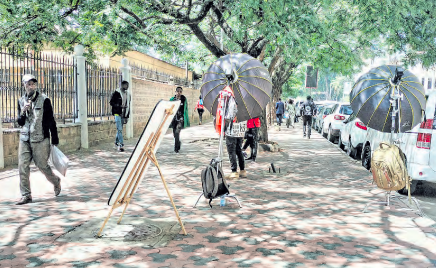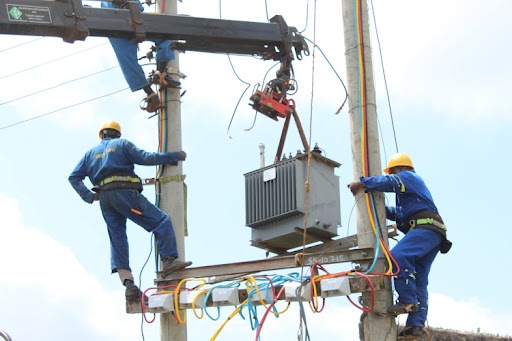
In years past, a trip to the Nairobi Central Business District (CBD) was incomplete without being photographed at the iconic Kenya International Convention Centre (KICC).
A cluster of photographers has always welcomed visitors at one of the city’s tallest buildings, quickly pitching enticing picture-taking angles to help them store memories of the building unveiled in 1973.
Those photographers have several things in common. Khaki clothes, analogue still cameras and greying hair, are a clear indication of their ages.
“That has been my ‘office’ for 26 years now. Business was good before the digital revolution. I used to make at least Sh3,500 on a bad day. I now barely manage Sh500. I think it is time I exit the stage,’’ Paul Mbogo 62 told the Star.
“Gen Z did not only shoot down the Finance Bill, 2023, they also rode on technology and emerging trends to send some ‘analogue’ photographers home. A young crop of photographers is more sophisticated, quick and affordable. They have taken over the city.’’
A spot check by the Star noted clusters of young photographers at various spots in the city centre, KICC included.
Killian Okoth 23 is a second-year student at a local university. When he is not in class, he is at KICC next to the former Garden Square Restaurant (now Garden Square by Ashaki) with a tripod; a light shed and an instant photo camera ready to capture moments at a fee.
“That is my primary source of income. I charge Sh200 for three instant photos. On a good day, I pocket close to Sh3,000, enough for my expenditure at school and still spare something to support my parents upcountry,’’ Okoth says, peering in all directions for a would-be customer.
He learned the trade from a fellow student, Jerry Maina who still conducts the trade next to Jamia Mosque in the city centre.
“I pitched the idea to my local church pastor who was kind enough to buy me the equipment. I don’t depend on anyone for pocket money anymore,’’ Okoth said.
Sally Karemi 26 is also in the business.
‘’We have added swag to photography. We ensure that our customers capture moments at most scenic places in the city and send receive their photos instantly on WhatsApp, emails or share directly to their phones using Bluetooth,’’ she said.
She adds that innovation is key and that uniqueness and coolness matter the most.
“Most of our customers are young people who follow trends. Those who are not ready to adapt to fast-changing trends should either reinvent or ship out”.
This is not a uniquely Nairobi affair.
Those photographers are quickly spreading to various towns within the country, with some targeting other iconic sites even upcountry. In Eldoret Town, they take over the entire road in front of Zion mall on weekends wile in Kitale their favourite hangout is outside the Law Courts.
The scenic green garden, a dam and a forest trail attract hundreds of nature lovers, especially on weekends.
A photographer who only identified himself as Kelvin, camps at Naiposha Garden in Limuru at least three days a week.
“I’m among the pioneers of modern-day street photography in Nairobi. This is my full-time job after unsuccessful tarmacking for two years. My degree is gathering dust but this job is feeding my family,’’ the father of three said proudly.
He says that apart from the unique ready clientele at Naiposha, he ran from regular harassment by both the police and city county officers.
“They are always hunting us for bribes. It is sick mentality.’’ Dan Luvanda, another university student practicing street photography near the 1998 Bomb Blast Memorial in Nairobi CBD, echoes his sentiments.
“How I wish the government captured this moment to come up with clear policies to formalize street photography. Thousands of young people in this country are now depending on the job for survival. It is evil for the state to harass innovative and hardworking young people,’’ Luvanda said.











